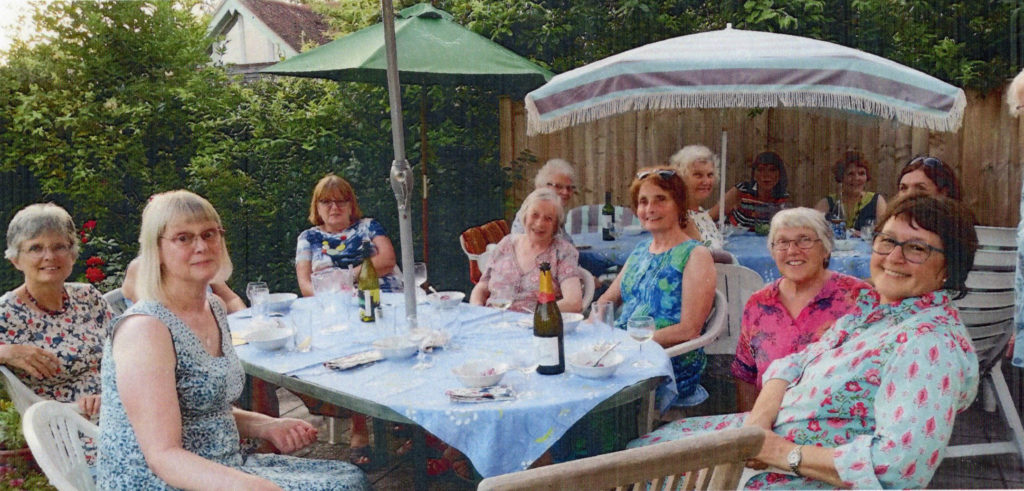Wolvercote W.I. is a friendly and welcoming group and would love you to come along and join us.
We have a speaker or an activity most months, covering a wide range of topics, followed by tea/coffee and chat. We also have parties in the Summer and at Christmas.
Please come along to Wolvercote Village Hall on the 2nd Tuesday of the month (except August) at 7.30 pm.

History
Wolvercote W.I. started in April 1918 with 28 members, who paid 2 shillings for membership and by the end of the year, membership had risen to 52. The W.I. has always been non-denominational and it is for women over 16 years of age.
Wolvercote had no nurse or doctor in 1918 and the W.I. swung into action raising sufficient funds for a nurse to be resident in the Village by the end of the year. Quite an achievement for a new organisation.
We have remained at the heart of the Village and actively support Wolvercote Festival, St Peter’s Fete, Apple Day, Neighbourhood Forum and of course our Annual Village Quiz, which started in 2004.
WI and the Village Hall
Wolvercote W.I. was instrumental in raising funds to build the Village Hall. Proceeds from the Wolvercote Village Fete were donated in 1922. Fundraising by the W.I. continued relentlessly with appeal letters, dances, jumble sales, raffles, and Gardeners Market (held in the Mayor’s Garden) for numerous years.
In 1930 the then Duke of Marlborough gifted land for the Village Hall. The Village Hall was opened in 1932, 10 years after fundraising started.
WI Campaigns
The National Federation of Women’s Institutes has a long history of campaigning to raise awareness and promote a variety of topics, including recently, the plight of bees, reducing food waste and food poverty, modern slavery, plastic soup, mental health issues and the importance of health screening and recognising early symptoms, particularly ovarian cancers.
Historical campaigns included equal work for equal pay (1943) finally passed by an Act of Parliament in 1970, preserving the countryside against “desecration by litter” (1954), which led to Keep Britain Tidy, restricting smoking in public places (1964), full and free family planning service (1972) and legislation regarding public footpaths.
